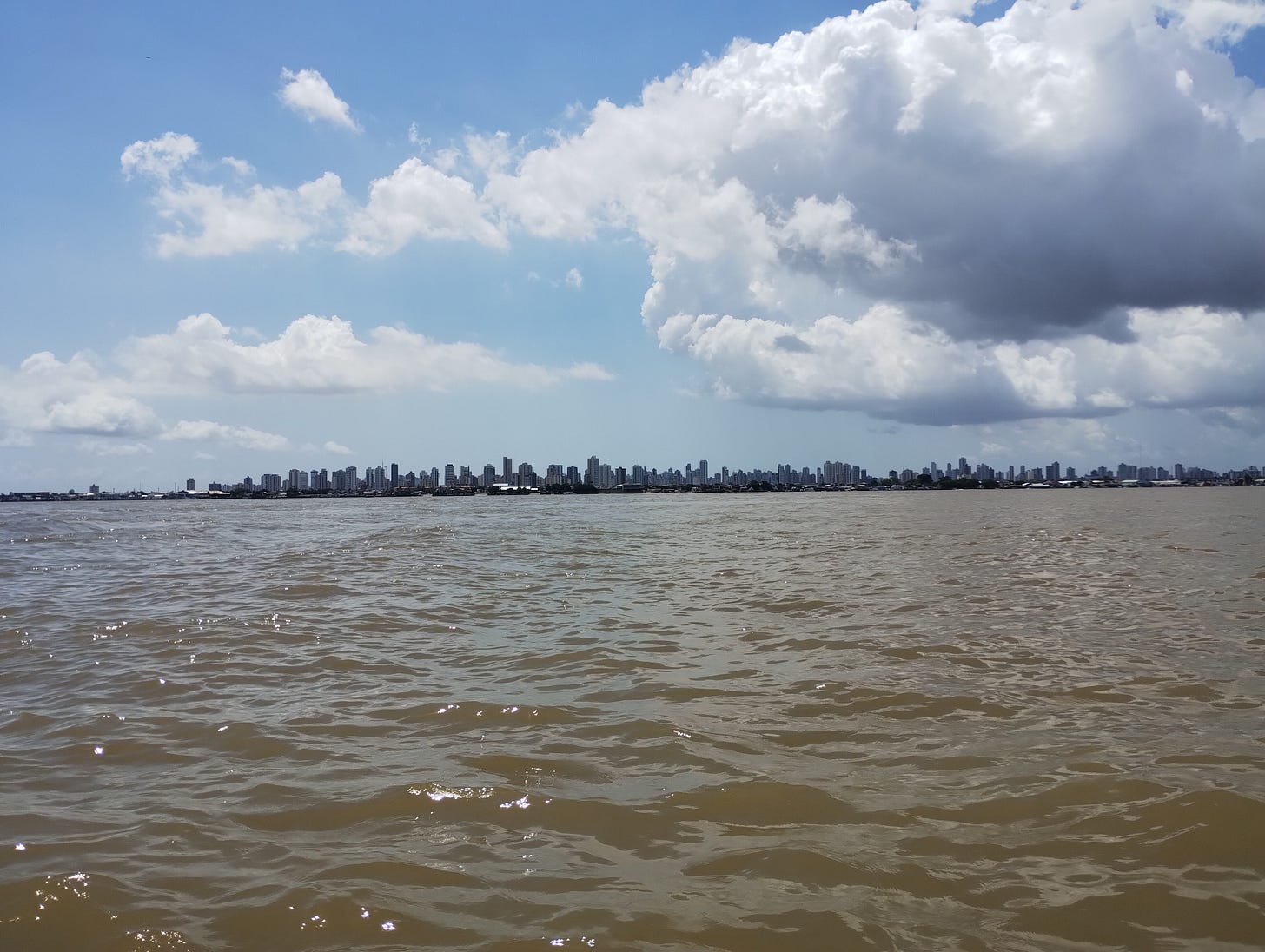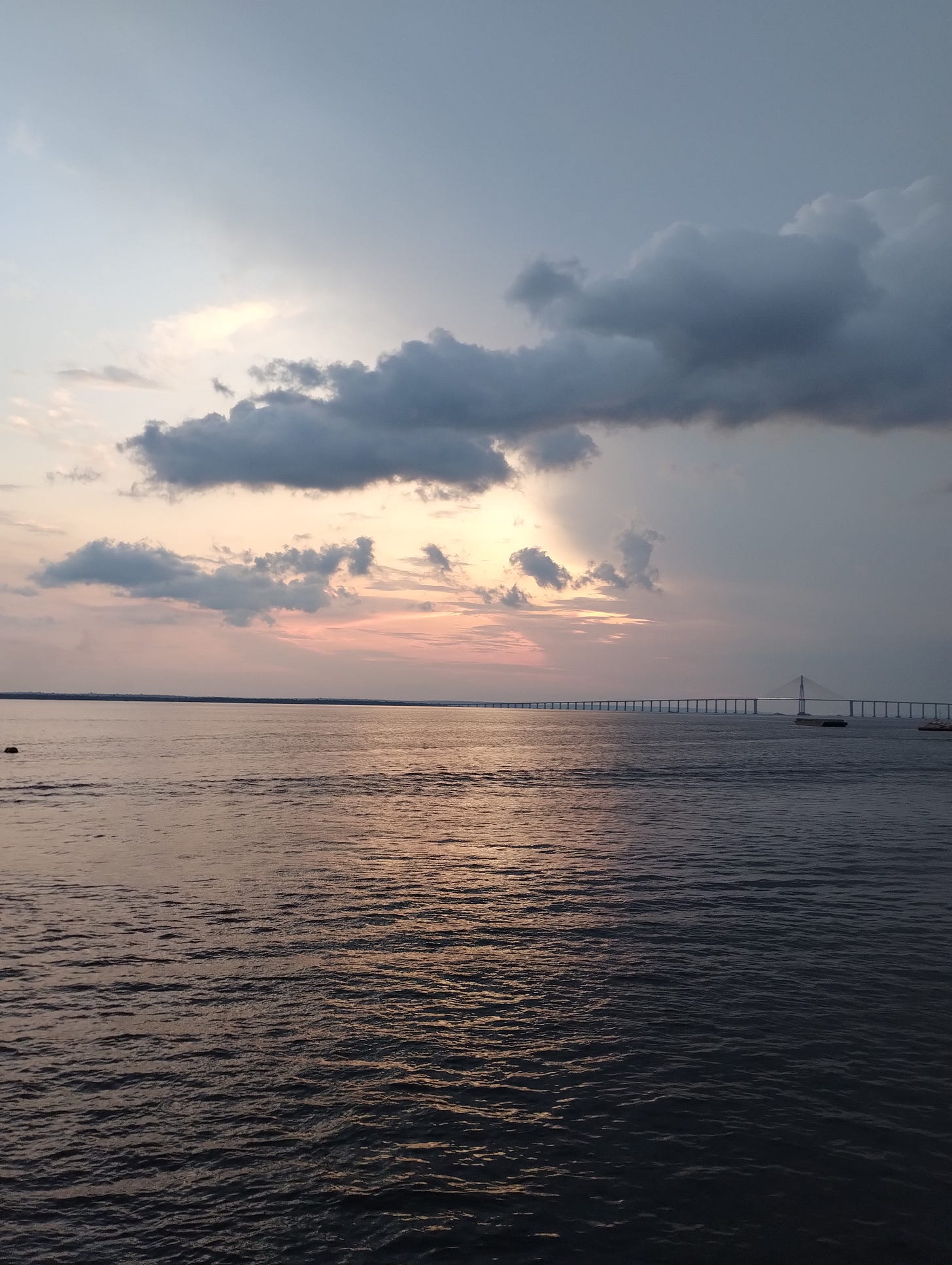'I don't want to be happy, I want to have an interesting life'
Nomadic life occupies the mind in a way that gives little time to be sad or happy
During my Sunday readings, I discovered an outstanding interview from 2014 with Contardo Calligaris, a renowned Italian psychoanalyst who lived in Brazil and passed away in 2021. The topic is happiness. Here are some excerpts that I'd like to highlight. I'll continue afterward.
I don't really like the word "happiness," to tell the truth. […] An example is the talk about a barbecue. You take a taxi on Sunday at noon to go to the office, and the taxi driver says, "Ah, we're here working, but it would be great to be at a barbecue, having a beer." Maybe you or the taxi driver have an ulcer, and having a beer would be no pleasure. Not even in eating steak.
Even if there were no issues, you might hate the people there and not enjoy yourself. In general, we're terrible when it comes to pleasure.
The fact that you might desire a man, a woman, a car, a watch, a piece of jewelry, or a trip doesn't matter. On the day you have that man, that woman, that car, that watch, that piece of jewelry, or that trip, you'll realize it's time to desire something else. So, I usually say I don't want to be happy... I want to have an interesting life
Having an interesting life means living fully. This presupposes being able to despair when losing something important to you. You need to fully feel the pains: losses, mourning, failures. This idea of happiness that tries to shield us from everything bad is a tremendous disaster.
I believe we should never regret anything, especially our own decisions. I believe that, deep down, we almost always make the only decision we could make in those circumstances. So, it's not worth regretting the past.
This newsletter has touched on the pursuit of happiness ins some texts before, but it's the first time the subject appears in the title. I should return to the topic several times due to its importance.
I agree with absolutely everything I've read. The freedom of nomadic life allows "barbecue moments" to be as rare as possible. Of course, they still exist and will always exist in life, but nowadays I can mostly do what I want most of the time — work is a different topic, deserving a future text.
When Contardo says that desire is irrelevant, he's right. I have always wanted to travel a lot. As a nomad, I'm constantly on the move. Shouldn't I be radiantly happy? However, I need increasingly longer and more frequent trips to satisfy my dopamine. As I wrote these days, I miss traveling "for real”. I got very frustrated with slow internet, felt loneliness in hotels, and got lost in time zones at the triple border. It were hard days.
This drives us to Contardo's most crucial point in the interview. I can talk about anything in my life, except it's not interesting. It's interesting to what I consider interesting. While I can have a routine, I'm on a three-week tour throug the Amazon, passing through Tabatinga, Manaus, and Belém, with no routine at all.
Tabatinga is a city plagued by drug trafficking and lawlessness. Many cars and motorcycles circulate without license plates, and hardly anyone wears a helmet. I saw motorcycles on the sidewalk. There were no pedestrian crossings, no traffic lights. A mess.
Belém, the capital of the state of Pará, will host COP30 in 2025. I was there for one of my most incredible professional experiences, covering the Amazon Summit, the first significant event in the city as preparation for the UN summit in two years. Pará is known for its culture, music, art, and gastronomy. I had bacuri ice cream and went to a carimbó bar. Awesome.
Manaus, the capital of Amazonas, with two million inhabitants, is the largest city in the Brazilian Amazon. It hosted games for the 2014 World Cup. Manaus has its contradictions: a town embedded in the world's largest tropical forest that practically lacks trees. The surrounding nature is fascinating, although I explored it less than I would have liked.
I've provided a brief description of these three places to say that I've had the opportunity to discover a little more of Brazil. And that satisfies me. It's common in these three cities to talk to local people who don't know much beyond their city. In other words, it's an unknown region for most Brazilians and even for Brazilians from the area.
However, to reach this point, I went through an intense process of losses and fully experienced the pains, as Contardo suggests. It was necessary to start a new life with upheavals. And now my wanderings are much more manageable. I don't miss having a couch, as I'm frequently asked, because I have a (usually) comfortable sofa with each Airbnb. I traded one couch for many couches. I traded one story for many stories.
This conducts us to Contardo's last point, regret. He's right, the best philosophy of life is to regret nothing. However, to make the best decision, we need to be well-armed with self-knowledge. We can't deceive ourselves. The nomadic life has taught me that.
Making life interesting is doing what I like, being in the places I want to be, when I want to be there. I regret my decisions as a teenager more than those of my adult life.
I don't have the pretension or the illusion that this will become a book or a movie or that my future nephews and grandchildren will stop to listen to the stories of the nomad uncle/grandfather. You need to live an interesting life for yourself. Other people will only be interested in fragments of it.
If you read this newsletter, I suppose you have at least a minimal interest in more flexibility. If you allow me to offer an opinion, put it into practice as soon as possible. I always say that becoming a nomad is extreme, but how can you make your life more interesting?
It's also important to consider what's interesting for you. It could be frequenting expensive restaurants or living on a farm. The rulers are different. What's the same for everyone is the passage of time. Each day spent doing things that don't bring you pleasure is one less interesting day to live.
Social media has also brought a paradigm shift about what's interesting. 95% of what I see on Instagram is uninteresting to me. People find it interesting to post their child's monthly birthday or when they go to a restaurant. I don't judge them, it's the game to be played.
As I suspected, I discovered that living without a home would alleviate some of my anxieties. Constantly having to adapt to a new home, a new city, a new culture, and new people, while working remotely, occupies the mind in a way that gives little time to be sad or happy.
Routine ordinary life gives me chills. I somehow envy those who are happy with it. Maybe comparing levels of happiness and life satisfaction will never be possible. I'd like to know if I'm more or less satisfied. The best we can do is compare with other moments in our lives and our choices.
That's why I'll always carry Contardo's words. I don't want to be happy, I want to have an interesting life.
Reflections and stories of such life will always be in No Direction Home. If you like it, share it with your friends or consider becoming a paid subscriber.





I loved this one, Mateus. So much to digest and the philosophical excerpts from the Contardo interview were great. I don't know if you ever saw the classic movie Harold and Maude. It's about a love affair btwn an 80 yr old woman and a 20-something guy, who prior to meeting her is considering suicide. Maude has lived her life fully, an unadulterated, chaotic beauty of a life filled with highs and lows and a massive amount of experiences. When he asks her why she's done so much her answer is, "Go live life, otherwise you got nothing to talk about in the locker room." Made me laugh but true, so very true. Go live life!!
Sometimes hard times can make life a lot more interesting than just living a fully predictable life. Being a nomad probably makes having a predictable life almost impossible, right? 🙃